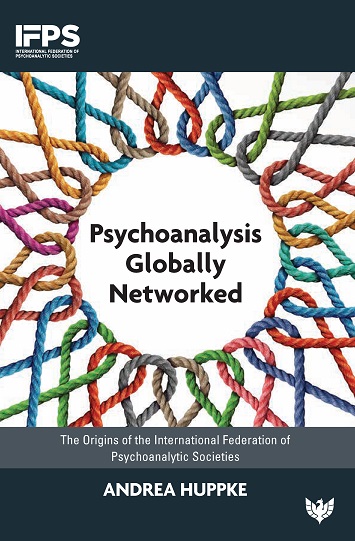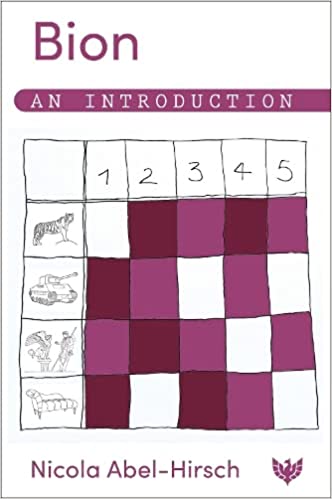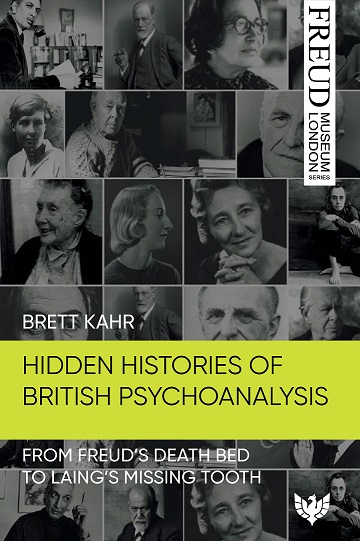Psychoanalysis Globally Networked: The Origins of the International Federation of Psychoanalytic Societies
Part of International Federation of Psychoanalytic Societies series - more in this series

Book Details
- Publisher : Karnac Books
- Published : November 2023
- Pages : 260
- Category :
Psychoanalysis - Category 2 :
Bargain and Discounted Titles - Catalogue No : 97476
- ISBN 13 : 9781800132269
- ISBN 10 : 1800132263
There are currently no reviews
Be the first to review
Since the very beginning with Sigmund Freud, the psychoanalytic movement has been in the sway of strong group dynamics. There have been hierarchies, tensions between subgroups, splits and exclusions. On July 30, 1962, in Amsterdam, the representatives of psychoanalytic societies in Germany (Werner Schwidder and Franz Heigl), Mexico (Erich Fromm and Jorge Silva Garcia), and Austria (Igor Caruso and Raoul Schindler) signed the foundation agreement of the International Federation of Psychoanalytic Societies (IFPS). One year later, they were joined by the New York William Alanson White Institute (Gerard Chrzanowsk) and more societies soon followed. The IFPS welcomed psychoanalysts less suited to the more orthodox International Psychoanalytical Association (IPA). Member societies and institutes of the IFPS are regarded as autonomous entities and, with its concept and structure, the IFPS refrains from being an authority or an object of identification for its members.
At the start, not belonging to the IPA was the strongest link between the IFPS founders, but they also shared similar views on doctrinal content and therapeutic approach. Many, for example, did not find the libido theory, the Oedipus complex, the death drive theory, and the metapsychology of Freudian teaching as significant as most IPA psychoanalysts did. Instead, they placed more emphasis on interdisciplinarity with the humanities, social sciences and biology, on the interpersonal aspect of the relationship between psychoanalysts and patients, on object relations, on the social context of the ailing subject, and on testing new methods for different types of illnesses. Political and social references were also important to many. The member societies and institutes of the IFPS do have to fulfil formal admission criteria, but, once they are admitted, they are regarded as autonomous entities over which the IFPS exerts no influence, including the requirements of training programmes. This is one of the formal differences with the IPA which organises the training programme for their members. With its concept and structure, the IFPS to this day refrains from being an authority or an object of identification for its members.
This volume documents the foundation and development of the IFPS throughout its first twenty years, revealing a rich source of psychoanalytic history.
Reviews and Endorsements
‘I am pleased to see this well-researched volume on the history of the IFPS, which has played a significant role in my psychoanalytic career. A society of equals, it has always been open to diversity of culture and theoretical outlook. Its spirit is palpable in the organisation’s celebration (not just acceptance) of difference. In many ways, it reflects the influence of Erich Fromm, one of the founders of both the IFPS and the William Alanson White Institute. IFPS exemplifies mutual respect. Its history deserves the caring attention it gets in this fine book.’
Sandra Buechler, PhD, training and supervising analyst, William Alanson White Institute, New York
‘Over sixty years ago, the IFPS was founded to welcome those whose practice diverged from mainstream Freudian psychoanalysis. Today, the survival of psychoanalysis is at stake, as it becomes more and more isolated in the academic scientific world. What the pioneering fathers of IFPS considered essential at that time to overcome isolation still applies today: openness for dialogue with other sciences, far-reaching self-determination in questions of training and therapeutic setting, and an intensive and respectful exchange of ideas and experiences among each other. Andrea Huppke’s book on the history of the IFPS records how these paths were realised. She invites us to learn from history and apply it to the present.’
Dr Rainer Funk, literary executor of Erich Fromm and psychoanalyst in Tübingen, Germany
‘I am very happy to see that Andrea Huppke has written a definitive history of the International Federation of Psychoanalytic Societies. It illustrates how the politics of theoretical wars have undermined the real goal of psychoanalysis and psychotherapy: to heal people who suffering. Freud’s last words in Studies in Hysteria were: “much will be gained if we succeed in transforming hysterical misery into common unhappiness. With mental life restored to health you will be better armed against that unhappiness”. I fully endorse Andrea Huppke’s book.’
Henry Lothane, MD, clinical professor of psychiatry, Icahn School of Medicine, Mount Sinai, New York
‘It is a pleasure to follow the author through the jungle of publications, documents and correspondence, which she has concisely cleared and prepared for presentation. The history of international psychoanalysis beyond the IPA emerges vividly in its ambivalences and lines of conflict. The author gives us readers the freedom to reflect on the organizational dynamics that shine through and thus develop a deeper understanding of this part of the history of psychoanalysis.’
Psyche – Z Psychoanal, 78, 2024, Vera Kattermann, translated from the original German
Table of Contents
Acknowledgements
About the author
Preface by Marco Conci, Christer Sjödin, and Grigoris Maniadakis
Introduction
Part I
The early years
1. The prehistory of the International Federation of Psychoanalytic Societies (IFPS)
2. The origins and expansion of the IFPS
3. Forums and workshops in the 1960s and 1970s
4. Developments through the 1970s and 1980s
Part II
Psychoanalytic dissidents
5. Liberal, orthodox, and dissident psychoanalysis
6. Conceptualising the IFPS
Conclusion
References
Appendix
Index
About the Author(s)
Andrea Huppke is psychoanalyst, group analyst, supervisor, and training analyst in Berlin, Germany. She has written several publications in the field of the history of psychoanalysis, most of them published in Luzifer-Amor: Journal for the History of Psychoanalysis. She wrote her dissertation about the first twenty years of the IFPS; it was published in German in 2021.
Customer Reviews
Our customers have not yet reviewed this title. Be the first add your own review for this title.
You may also like
Hidden Histories of British Psychoanalysis: From Freud’s Death Bed to Laing’s...
Brett Kahr
Price £27.89
save £3.10







